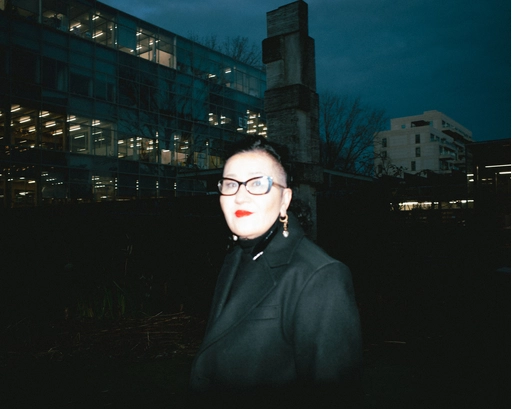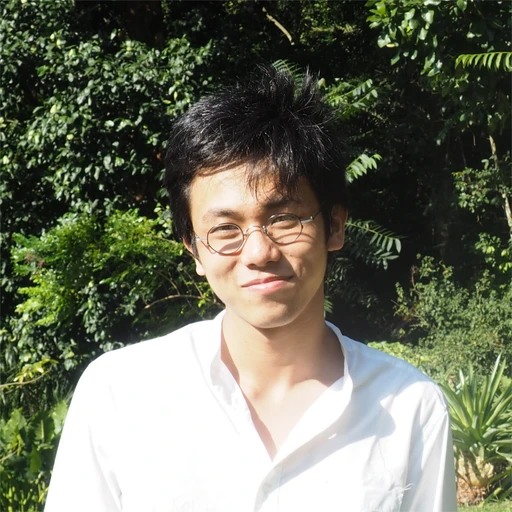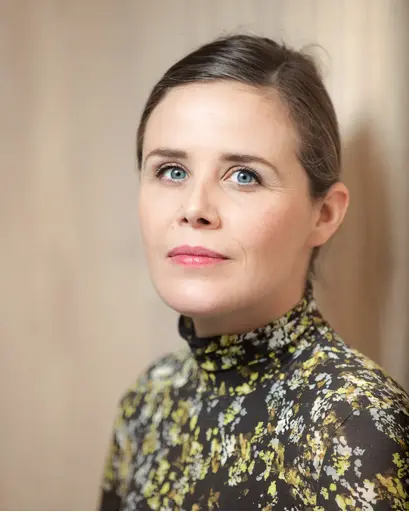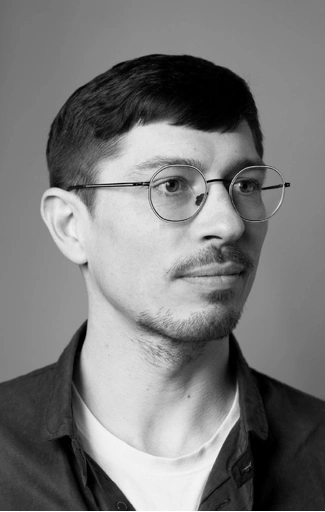event
03
Mar '22
A public lecture hosted by Femke Herregraven with keynote speaker dr. Rodrigo Ochigame
A public lecture hosted by Femke Herregraven with keynote speaker dr. Rodrigo Ochigame
Deterritorializing Intelligence is a public lecture in the frame of the ongoing Creator Doctus research of Femke Herregraven, which circumnavigates the historical, material and epistemological conditions of artificial intelligence.
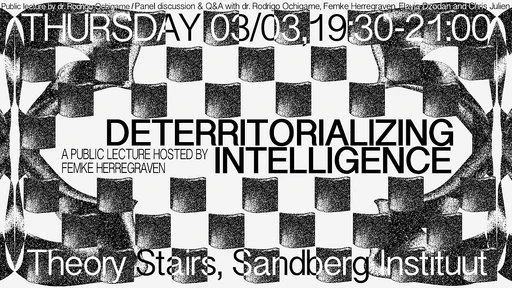
For this occasion, Femke Herregraven has invited prof. dr. Rodrigo Ochigame who examines unorthodox models of computational rationality, such as nonclassical logics from Brazil, nonbinary Turing machines from India, and frameworks of information science from Cuba. Their research includes digital anthropology, the anthropology of science and technology, and the social dimensions of robotics and artificial intelligence.
19:30 Introduction and public lecture by dr. Rodrigo Ochigame
20:30 Panel discussion & Q&A with dr. Rodrigo Ochigame, Femke Herregraven, Flavia Dzodan and Chris Julien.
In collaboration with Sandberg Instituut & Waag
Made possible with support by Stimuleringsfonds Creatieve Industrie.
19:30 Introduction and public lecture by dr. Rodrigo Ochigame
20:30 Panel discussion & Q&A with dr. Rodrigo Ochigame, Femke Herregraven, Flavia Dzodan and Chris Julien.
In collaboration with Sandberg Instituut & Waag
Made possible with support by Stimuleringsfonds Creatieve Industrie.
Rodrigo Ochigame an assistant professor in the Institute of Cultural Anthropology and Development Sociology at Leiden University, the Netherlands. Their research examines unorthodox models of computational rationality, such as nonclassical logics from Brazil, nonbinary Turing machines from India, and frameworks of information science from Cuba. Ochigame received a BA with highest honors from the University of California, Berkeley, and a PhD from the Massachusetts Institute of Technology (MIT)
Femke Herregraven’s work examines the impact of abstract value systems on landscapes, ecosystems, historiography, and daily life. Her research into the interplay between financial markets, risk, and the physical world forms the basis of her sculptures, drawings, films, and hybrid installations.
lector/professor
Flavia Dzodan is Lector of Algorithmic Cultures at the Rietveld Academie / Sandberg Instituut, where she leads a research group focused on computational aesthetics, affective refusal, and the algorithmic afterlives of colonial classification. Her interdisciplinary practice spans theory, installation, video, speculative historiography, and micro-publication. Across these modalities, Dzodan theorizes the logistical capture of life and emotion under computational regimes, developing recursive methodologies that resist optimization, solutionism, and epistemic legibility.
Chris Julien mixes research and practice in the fields of public innovation, ecology and culture, with a focus on epistemology and governance. He is currently pursuing a PhD at Utrecht university that combines new materialisms with decolonial and ecological thought to constitute a field of so-called ‘ecological governance’ supervised by Iris van der Tuin. Furthermore, he is active in, and a spokesperson for, Extinction Rebellion and as an independent practitioner focusing on urban ecology and regenerative cultures, besides siting on various boards and committees. He holds cum laude masters degrees in Conflict Studies & Human Rights and in Cultural Analysis.
For this occasion, Femke Herregraven has invited prof. dr. Rodrigo Ochigame who examines unorthodox models of computational rationality, such as nonclassical logics from Brazil, nonbinary Turing machines from India, and frameworks of information science from Cuba. Their research includes digital anthropology, the anthropology of science and technology, and the social dimensions of robotics and artificial intelligence.
